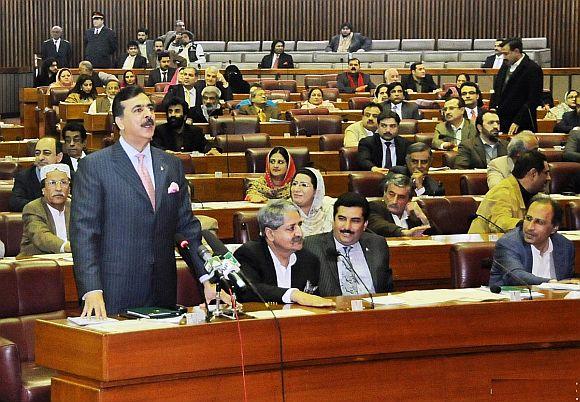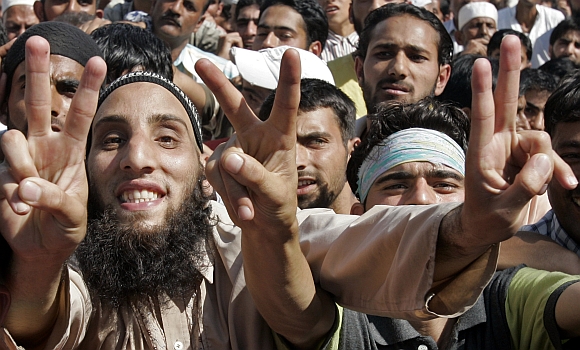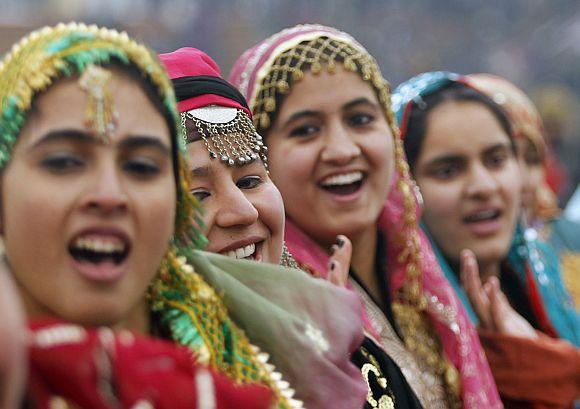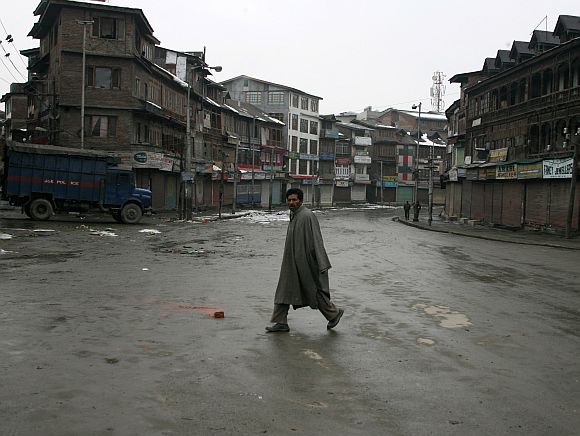
Pakistan Prime Minister Yusuf Raza Gilani on Sunday acknowledged that the Kashmir issue would have to be resolved through dialogue and diplomacy as the nation "cannot afford wars" in the 21st century.
Four wars have already been fought on the Kashmir issue and the region still "was a flashpoint", he said, but admitted that in the 21st century "we cannot afford wars".
"We want to resolve issues through dialogue, diplomacy, prudent policy and national consensus," he said while addressing a convention at the Prime Minister's Secretariat to mark 'Kashmir Solidarity Day'.
Gilani said the Kashmir issue remained the cornerstone of the country's foreign policy.
Click on NEXT for more...
For Rediff Realtime News on Kashmir, click here

"We are committed to continuing with the moral, political and diplomatic support to Kashmiris. The whole nation, including all the political parties, is united on the cause of Kashmir," he said.
Since Pakistan is a responsible country and a responsible nuclear power, it has to make responsible policies, Gilani said.
Pakistan's policies should be made through national consensus and by the chosen representatives of the people, and not by individuals, he said.
The Kashmir policy had been the focus of the Pakistan People's Party-led government in line with the vision of the party's founder Zulfikar Ali Bhutto, Gilani said.
Click on NEXT for more...
For Rediff Realtime News on Kashmir, click here

Rallies were held across Pakistan on Sunday to mark 'Kashmir Solidarity Day', which is a public holiday.
The day has been observed by Pakistan since 1990 to highlight the Kashmir issue. During the rallies, Pakistanis pledged to continue supporting the Kashmiris for their "right to self-determination".
Special prayers were offered at mosques and hundreds of people formed a human chain in Pakistan-occupied Kashmir.
Banners calling for Kashmir's freedom were put up along roads in cities and towns across Pakistan.
Citing the policy of Pakistan-China friendship, Gilani told the convention at the PM's Secretariat that the whole country was united on this policy.
As in the case of Pakistan's policy on China, there was no difference of opinion on the Kashmir cause, he claimed.
Click on NEXT for more...
For Rediff Realtime News on Kashmir, click here

In an obvious reference to Pervez Musharraf, Gilani noted that there were question marks about Pakistan's policy on Afghanistan as it was made by a dictator who wore the four hats of the Chairman of the Joint Chiefs of Staff Committee, the army chief, the President and the Chief Executive.
Despite his power, the dictator could not sustain pressure after a call from a United States Under Secretary, he said.
In contrast, the democratic government closed North Atlantic Treaty Organisation's supply lines, got the US to vacate Shamsi airbase and boycotted the Bonn Conference on Afghanistan after NATO attack on Pakistani border posts in November last year, he said.
President Asif Ali Zardari, in a special message, reiterated Pakistan's "fullest moral, political and diplomatic support to Kashmiris".
In a separate message, Gilani said, "A peaceful settlement of the dispute in accordance with the aspirations of the Kashmiri people is a must to ensure peace and prosperity in the region".